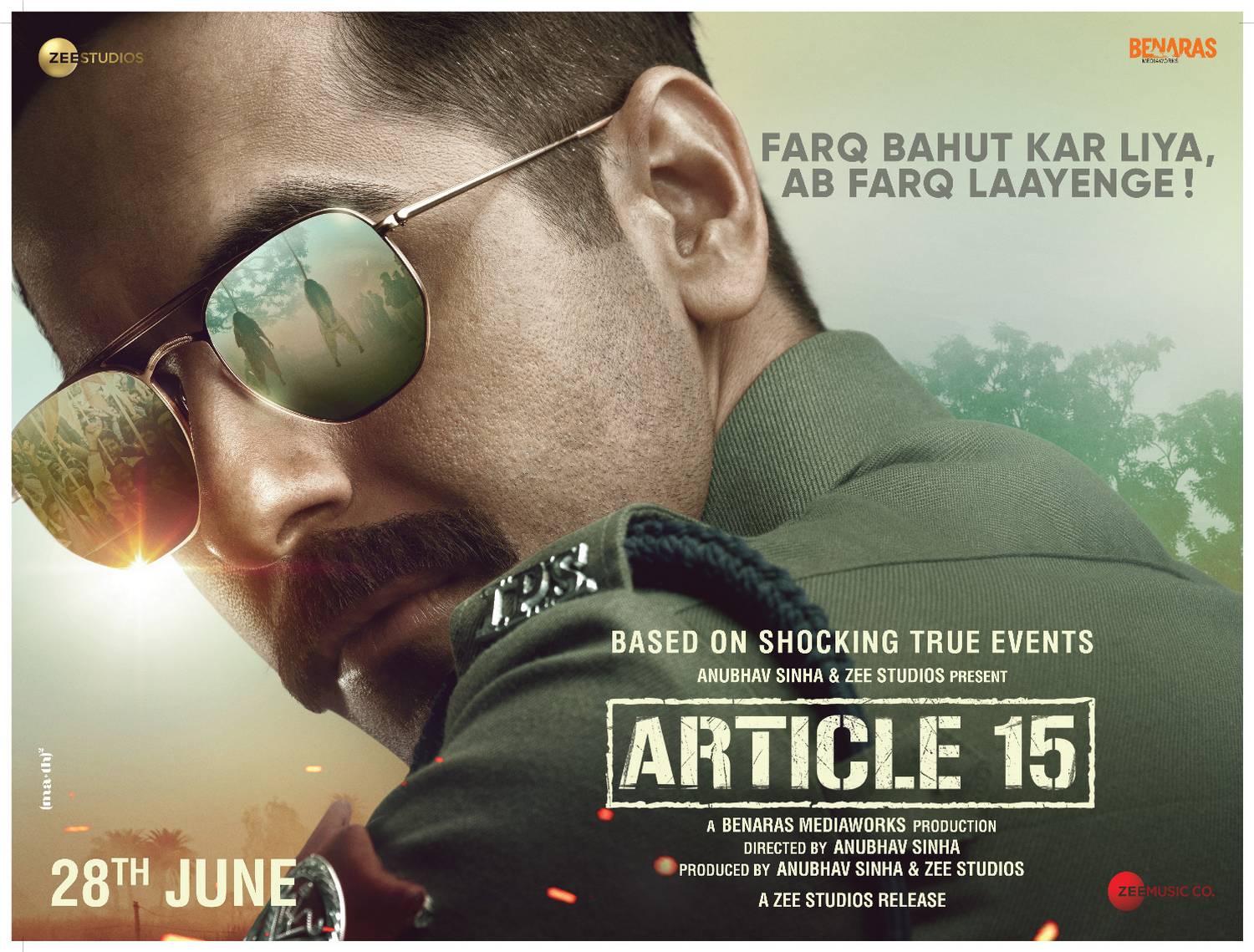
Bollywood Redux Film Review “Article 15”
WATCH THE TRAILER HERE
First, the Recap:
The pursuit of idealism. To have the manner within yourself to make every action and word one that reflects that which you have been firmly immersed in ideologically is no easy feat, particularly when the forces around you would strongly dictate an opposing viewpoint. So, in the face of such resistance, do you have the fortitude to stand your ground, more so when it’s in the name of justice? For big city cop Ayan (Ayushmann Khurrana) and two of his trusted officers Chandrabhan (Shubhrajyoti Barat) and Nihal (Sushil Pandey), an assignment to police a small village in rural India turns into a personal campaign to see a heinous, discriminatory, hate-based crime resolved via a known and established law while facing an onslaught of corruption, twisted loyalties, political maneuvering, and distrust that constantly threatens Ayan’s ability to stand for real truth and abiding honor.
Next, my Mind:
It’s still so overtly noteworthy to mention it when there’s another example of overall younger filmmaking talent creating a splash with their work, and here it is once more engineered by once such artist, Anubhav Sinha, this being the second of his films this critic had the chance to screen and now offer my opinion of. And, this also stands as a project that this critic hopes will manage to gain a wider audience here in the U.S., especially in this day and age of these South Asian film’s availability on streaming services like Amazon Prime and Netflix, as this only provides greater chances for films like this and noteworthy directors like Sinha to be exposed to film lovers well beyond India’s shores and also then aid these artists with ongoing chances to not only make more films, but to be recognized for their accomplishments here in the States as well, which is something this critic would very much like to witness.
Clear thinking, pride in seeking out and establishing the facts, being upright in judgement and fairness, firmly holding onto the law as it should be, and having to face being in a place where these elements are so often looked over, tread upon, or warped into further injustice rather than resolution, all of this is given consideration through this effectively rendered feature film from writer/director/producer Sinha, writer Gaurav Solanki, co-producers Anurag Bedi and Ruchir Tiwari, and executive producer Sagar Shirgaonkar that sees a quest for impartiality, objectivity, honesty, and revealing of the truth under constant bombardment by those who feel they know better or are under the weight of pressure from others whose means of control is far from legitimate and ruled by fear, bribery, bigotry, intolerance, and general apathy towards circumstances that should warrant not just resolution, but absolute scrutiny and righting so as to never be allowed to occur again. This film is based on true events, which only makes it more evocative from the start.
As witnessed from the perspective of a by-the-book, no-nonsense, assertive yet inwardly empathetic police commander sent out into the styx to establish some more rigid but fair law and the subsequent quandaries he and his two most trusted officers encounter when a horrific crime is committed and local authorities seem less than inclined to see it taken care of as to sweep it under the proverbial rug, the film isn’t remotely hesitant to put into play its heavier thematic forays into semantics and activism vs. the law, conflicting ideologies and methods, the sway of unscrupulous individuals utilizing money as a weapon of deception and cover-ups, child labor, pushing against obstacles to reveal the truth, plights of an oppressed people and their means used to fight back, and, as the project’s title indicates, the invocation of Article 15 of Indian law that lays out the foundational gist of the narrative’s examination of grander social issues based on the prejudices we see depicted, often to deadly, fateful ends.
This critic feels that even though this film was originally released relatively recently (in 2019), its applicability to our literal contemporary times since is almost eerie, watching these days as the world has sunk into so much hatred, polarizing opinions, racism’s re-emergence to a forefront of discord, and the blatant overall inequity that’s permeating the social and cultural atmosphere. It therefore stands to reasons that it’s films like this one I feel are NEEDED in order to become far more than entertainment but, as I find so much in South Asian cinema, an awareness-raising battle cry about the realities of these aforementioned elements, which in turn should cause us to pause and think about what we can do to see such overt use of backwards political and religious agendas cease while likewise tackling the additional caste-based crimes as well. All of this requires better attention paid to so as to prevent acts like are depicted in the film from continuing, as that’s what makes this story stick in your mind–these events CAN and DO occur.
It does make the film’s finale all the more satisfying, as knowing there ARE good people out there trying to initiate change and will put it all on the line to see it happen is nothing short of inspiring. I was only familiar with Khurrana from more light-hearted/romantic comedy-style films (ie: “Meri Pyaari Bindu“, “Bareilly Ki Barfi“, Shubh Mangal Savdhan), so it was honestly great to see him exercise some straightforward, keenly intense dramatic acting chops for his role as Ayan, a deeply dedicated, reputable, ethical police commander who finds himself not only give a now post in the middle of nowhere, but soon in a place that the existing powers that be don’t truly want him. Once he begins to show that his goal to solve a shocking crime involving two young village girls is staunch and unwavering, it sets in motion a series of cascading incidents that put Ayan and his two most trusted officers in the crosshairs of less than honorable people, and watching him overcome the odds is fantastic, with Khurrana’s charisma and engagingly powerful presence dominating the proceedings as so perfectly befits the character.
Primary and additional supporting roles are here from Nassar as CBI officer Panikar who ultimately arrives closer to the events’ ending to try and put a final resolution together, which could even accuse Ayan of supposed unethical, personally motivated agendas, Manoj Pahwa as Bhramadatt Singh, a local village officer whose hands may be FAR from clean, Kumud Mishra as Kisan Jatav, another local officer in the village, Isha Talwar as Ayan’s wife Aditi, an inflammatory political writer/activist whom Ayan finds as a voice of both argument and conscious during his investigation, Sayani Gupta as Gaura, the sister of one of the victims in the case Ayan is doggedly trying to get worked justly, Mohd. Zeeshan Ayyub as local militant leader Nishad, Barat and Pandey as Ayan’s accompanying officers from the city who don’t always show they are totally straight when it comes to caste/religious biases, Aakash Dabhade as Satyendra, a old friend of Ayan’s from Delhi, Ashish Verma as Mayank, an assistant to Ayan, Ronjini Chakraborty as Dr. Malti Ram, the local coroner nefarious elements are trying to have stay silent during the case, Veen as Anshu, a local contractor whose more than involved in the events despite his “innocent” front.
Sumbul Touqeer is Amali, another assistant to Ayan who becomes more and more immersed in the case as it unfolds, along with other appearances by Shreya Awasthi and a host of others. So, in total, “Article 15” is a statement of our modern times, unabashedly projecting the actualities of corruption personally, politically, religiously, and socially to a magnitude that causes us to take notice as it applies to this day and age we live, hopefully to not cast it aside, but rather propel us to take action as we’re able to be a part of seeing real justice accomplished, law and order abide, and a better world re-established.
As always, this is all for your consideration and comment. Until next time, thank you for reading!

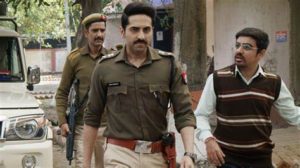

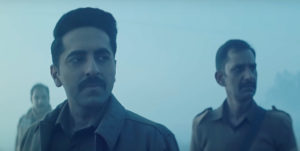
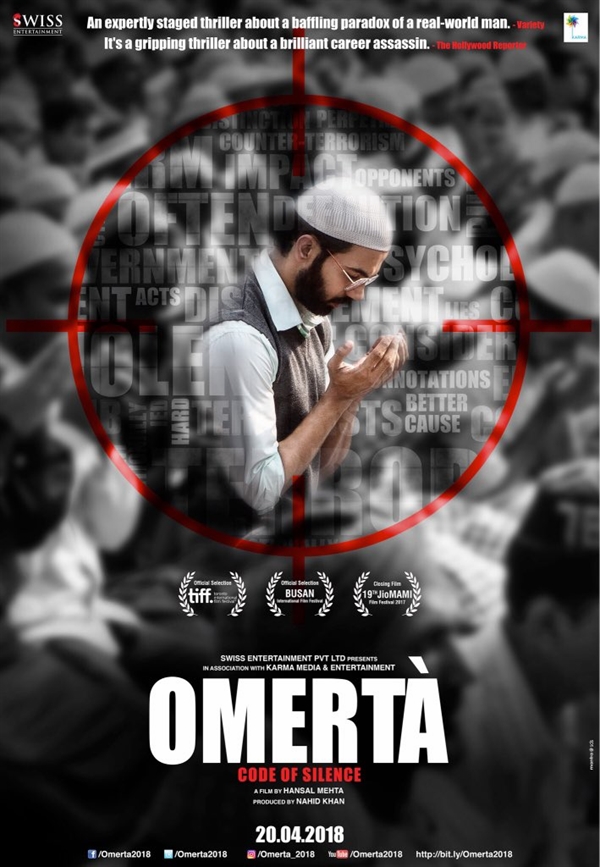
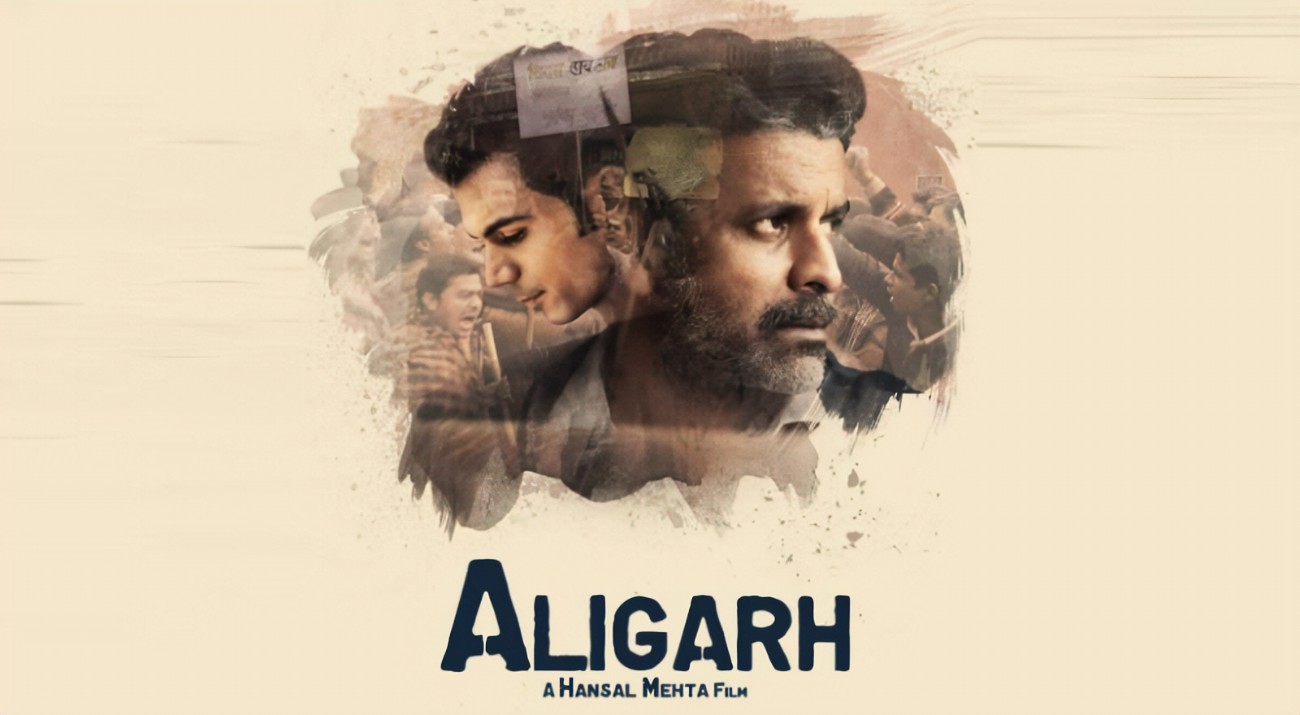
Permalink